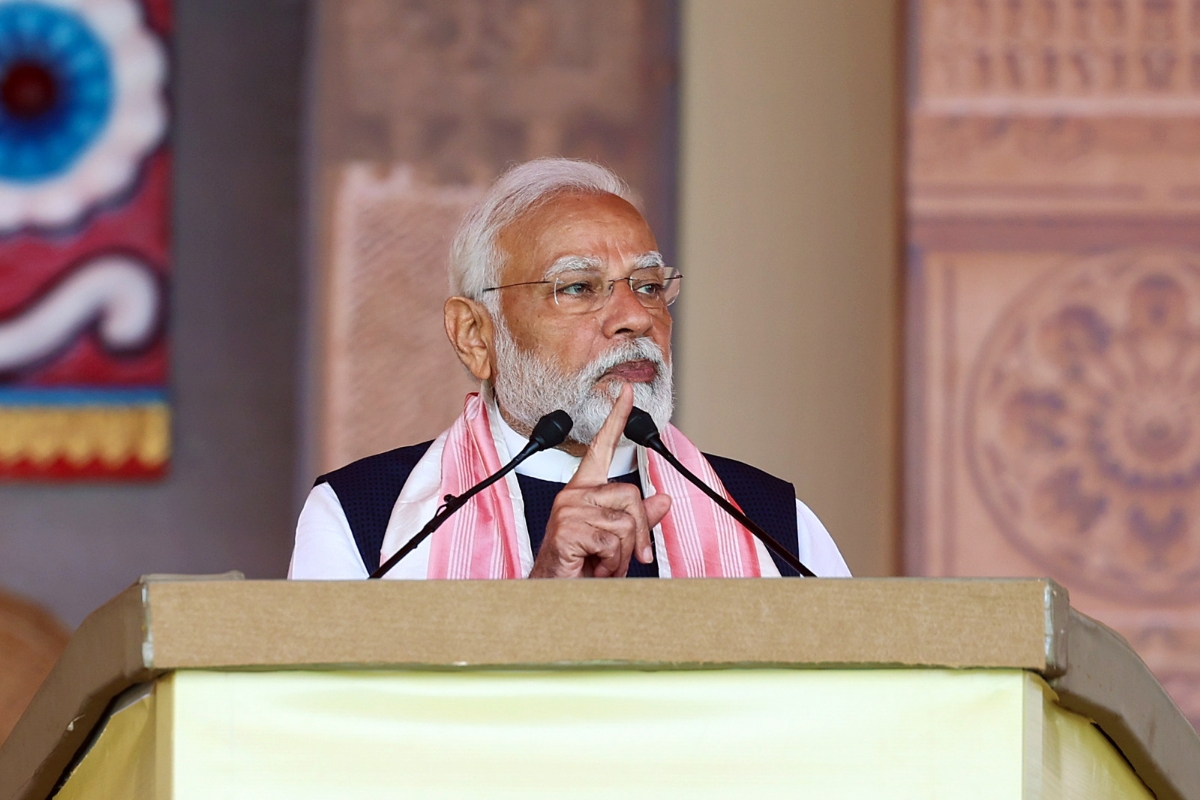Prime Minister Narendra Modi on Wednesday interacted with beneficiaries of government schemes from disadvantaged sections like Scheduled Castes, Backward Classes, and sanitation workers via video conferencing, and sanctioned credit support to one lakh entrepreneurs from the groups.
On the occasion, Mr Modi launched the Pradhan Mantri Samajik Utthan evam Rozgar Adharit Jankalyan (PM-SURAJ) national portal also.
Advertisement
Addressing the beneficiaries, he said about three lakh people had joined the programme from 470 districts virtually. This was another huge occasion being watched by the nation on the welfare of Dalits, backward and deprived sections.
The programme provided a glimpse of the government’s commitment towards the underprivileged, he said. A financial assistance of Rs 720 crore was transferred directly to the bank accounts of one lakh beneficiaries of the disadvantaged sections hailing in 500 different districts of the country.
“Such a system of DBT was unimaginable during the previous governments,” he said. The SURAJ Portal will facilitate financial assistance to the disadvantaged sections of society, similar to direct benefit transfers from other government schemes and free from middlemen, commissions and recommendations.
The prime minister said the schemes had distributed Ayushman Bharat Cards and PPE kits to Safai Mitras engaged in sewer and septic tank shramiks. The expansion of the services is part of the welfare campaign for SCs, STs and OBCs, along with the deprived sections.
Referring to his interaction with the beneficiaries, Mr Modi expressed satisfaction with how the welfare schemes reached the Dalits, deprived and backward communities. He said this makes him emotional as he is not separate from them and he sees in them his family.
The prime minister said the goal of Viksit Bharat by 2047 cannot be achieved without the advancement of the deprived segments. He said he has broken the mindset of the past and it is being ensured that facilities available to others like gas connection, bank accounts, toilets etc. are available to Dalits, backwards, deprived, and tribals.
He said many generations of the deprived segments were lost in just securing basic amenities. “After 2014 the government reached the segments devoid of any hope and made them partners in the nation’s development,” he said.
The biggest beneficiaries of schemes like free ration, free medical treatment, pucca houses, toilets, and Ujjwala gas connection are people on the periphery, the deprived segments. “Now we are working with the goal of saturation in these schemes”, the prime minister said.
The prime minister also mentioned schemes for nomadic and semi-nomadic communities and the NAMASTE scheme for Safai Karamcharis. Talking about eliminating the inhuman practice of manual scavenging, the prime minister pointed out that 60,000 sufferers have been given financial assistance to rebuild a life of dignity.
“Government is making all possible efforts to empower the SC, ST, and OBC communities,” he said, saying that the assistance provided to them by various institutions has been doubled in the last 10 years. He said the government has provided almost Rs 1.60 crores for the welfare of the SC community this year alone.
In previous governments, lakhs and crores of rupees were only associated with scams and now the money was being spent on the welfare of Dalits and the deprived and the development of the country.
Scholarships for SC, ST, and OBC youth have been increased, there is the reservation of 27 per cent seats for OBC in the all-India quota of Medical seats, making inroads for OBC students in NEET examination, and assistance from National Overseas Scholarship for students from underprivileged communities to pursue Master and PhD degrees abroad.
He said the amount of National Fellowships has also been increased to help students pursue PhD in science-related subjects. The Prime Minister expressed satisfaction that the National Commission for Backward Classes has got constitutional status. He also mentioned developing the Panch Teerths associated with the life of Babasaheb Ambedkar.
Narendra Sen from Indore, Madhya Pradesh, one of the beneficiaries, told the prime minister that he has founded an internet company dealing with cloud computing and narrated his journey from owning a cyber-cafe to learning coding, and becoming a founder. He said he aimed to empower the MSMEs by “digitalizing” them.











